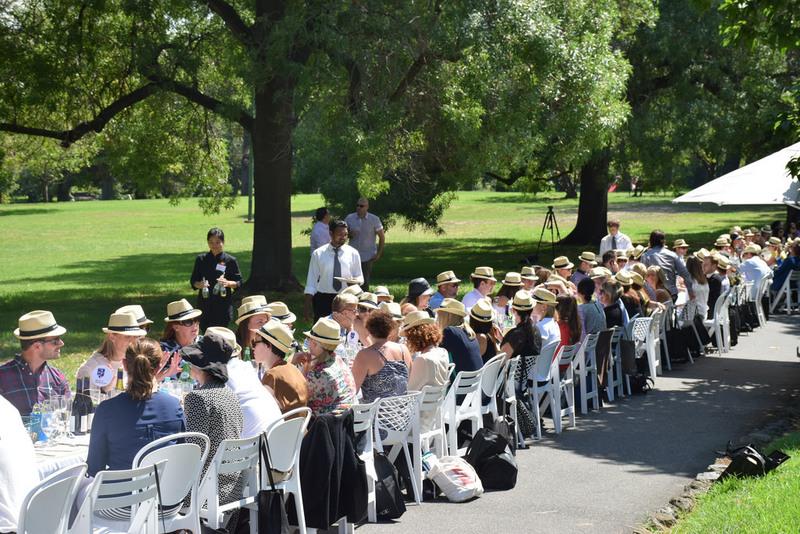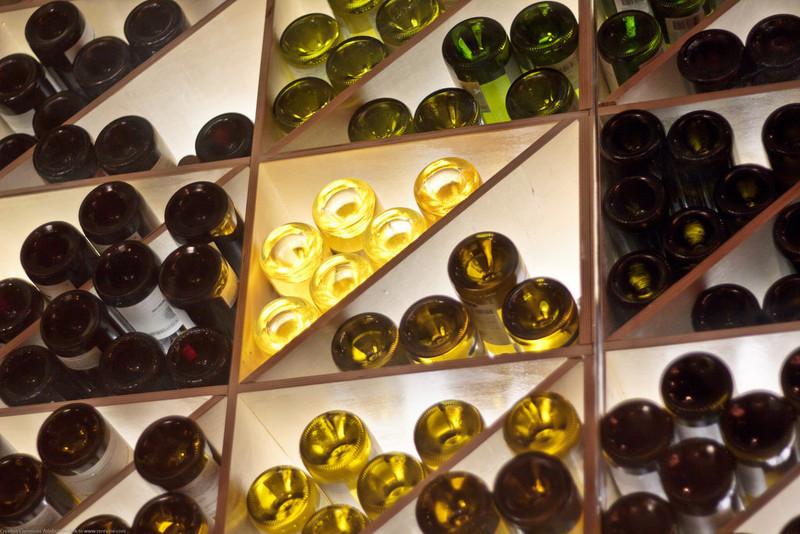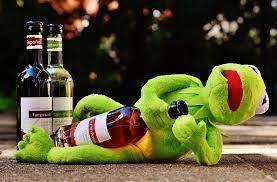Storage space is a valuable commodity and is particularly necessary for wines. If you’re a wine enthusiast and don’t have enough room to house your extensive but ever growing collection, Spacer can help you find a space within your local area.
Melbourne Food and Wine Festival
There are plenty of upcoming events for wine enthusiasts. The Melbourne Food and Wine Festival is fast approaching, with its date set for the 16th to 25th of March. It will be a great way to find new wines to add to your collection as well as tasting your existing favourites.
 It’s been running for 25 years now and it remains to be a social highlight of the city. The festival makes good use of its labyrinth of restaurants, basements and rooftops by bringing the community of fresh food producers, winemakers and hospitality artisans together for a week of food, wine and good times. Participate in the Crawl N Bite where you get to eat food and a matching drink from three venues in one night. If you’re really ambitious, you might want to try the World’s Longest Lunch. Simply choose one of Melbourne’s beautiful regions and lunch with friends and family amongst the vineyards, plains and riverlands, enjoying the views and regional produce to the heart’s content.
It’s been running for 25 years now and it remains to be a social highlight of the city. The festival makes good use of its labyrinth of restaurants, basements and rooftops by bringing the community of fresh food producers, winemakers and hospitality artisans together for a week of food, wine and good times. Participate in the Crawl N Bite where you get to eat food and a matching drink from three venues in one night. If you’re really ambitious, you might want to try the World’s Longest Lunch. Simply choose one of Melbourne’s beautiful regions and lunch with friends and family amongst the vineyards, plains and riverlands, enjoying the views and regional produce to the heart’s content.
After enjoying the festivities, the month of May is known for being Aussie Wine Month, so you can jump right back into trying all sorts of different wines and touring the vineyards of Australia. In preparation for these events, we have some handy tips for the long-term storing of wine, helping to ensure its flavour remains intact.
Keep it cool
It’s important to keep your wine in a cool place as this helps to preserve the flavour and quality of the wine for longer periods of time. It will also slow down the aging of the wine, as heat accelerates it and ‘cooks’ the wine. Temperatures between 12℃ and 14℃ is ideal for wine storage and should be kept constant with very little or no fluctuations all year round.
Stay away from humidity
This will depend on how the wine is sealed. Wines sealed with corks shouldn’t be exposed to rooms with a humidity level of over 50%. Keeping it over that level will increase the risk of mould and disintegration of the cork and this could eventually contaminate the flavour of the wine. However, if the climate is not humid enough, this could also pose problems since it will dry out the cork and cause it to shrink, leaving the wine to oxidise and flatten. Be extra careful with white wines as they tend to oxidise a lot easier than reds do.
Darkness suits
 Wines prefer darker places since there’s lesser chance of the wine cooking in the sunlight. Basements and cellars are the best places to store wines since they are below the house and have little or no chance of being exposed to sunlight. You could even store them within the household, in linen closets or wardrobes. Just make sure that these places, the basement and cellar in particular, are not too dry or warm. More delicate white wines such as Champagne can be so affected by ultraviolet light and might develop Lightstrike if exposed to it, changing the taste of the wine. This is why most wine bottles use coloured and tinted glass in order to counteract the ultraviolet affect. While this acts as a deterrent for ultraviolet damage, it is still best if it is stored in a dark place so that there is no risk of the light affecting the flavour at all.
Wines prefer darker places since there’s lesser chance of the wine cooking in the sunlight. Basements and cellars are the best places to store wines since they are below the house and have little or no chance of being exposed to sunlight. You could even store them within the household, in linen closets or wardrobes. Just make sure that these places, the basement and cellar in particular, are not too dry or warm. More delicate white wines such as Champagne can be so affected by ultraviolet light and might develop Lightstrike if exposed to it, changing the taste of the wine. This is why most wine bottles use coloured and tinted glass in order to counteract the ultraviolet affect. While this acts as a deterrent for ultraviolet damage, it is still best if it is stored in a dark place so that there is no risk of the light affecting the flavour at all.
Steer clear of vibrations
Household appliances such as washing machines, dryers, air conditioners and refrigerators tend to hum and buzz while they’re plugged in and working. When storing wine, it’s best to avoid storing near or next to these appliances. Some serious wine enthusiasts say these vibrations can speed up the chemical compounds reactions within the wine and ultimately affect the texture, flavour and overall quality of the wines. Older wines that have sediment can be disturbed and unable to settle, affecting the wine flavour and cause it to become gritty.
Places and how to store your wine
Basements and cellars are ideal loca tions for storage, however take the time to really measure the temperature and humidity levels before deciding to store. Investing in a proper wine rack will help you to store effectively and smartly. You can also decide to purchase a wine cooler or fridge designed specifically for storing wine. That way, you’ll be able to set the conditions suited for wines and not have to worry. Keep in mind though that not all wines are suited to being stored in such a way. Wines such as Riesling and Chardonnay, can be stored since they are designed to age. However, most red wines are able to be drunk right from the moment they are bottled. Despite this, it’s best to let them age a little bit so that the fruits and acids are able to blend together and marinate.
tions for storage, however take the time to really measure the temperature and humidity levels before deciding to store. Investing in a proper wine rack will help you to store effectively and smartly. You can also decide to purchase a wine cooler or fridge designed specifically for storing wine. That way, you’ll be able to set the conditions suited for wines and not have to worry. Keep in mind though that not all wines are suited to being stored in such a way. Wines such as Riesling and Chardonnay, can be stored since they are designed to age. However, most red wines are able to be drunk right from the moment they are bottled. Despite this, it’s best to let them age a little bit so that the fruits and acids are able to blend together and marinate.
Wine racks usually store wines horizontally but it doesn’t really make a difference to the quality of the wine. It can be said that storing wines horizontally is a way of keeping the cork hydrated However, for wines with screw caps or plastic and glass lids, storing horizontally is unnecessary.
Although there are many places that can be used as wine storage units, cellars are usually the most suitable because of the lack of natural light, ultraviolet light and vibrations. Add to your wine collection with the Melbourne Food and Wine Festival coming up this March and find the space that suits your criteria for wine storage on Spacer.




